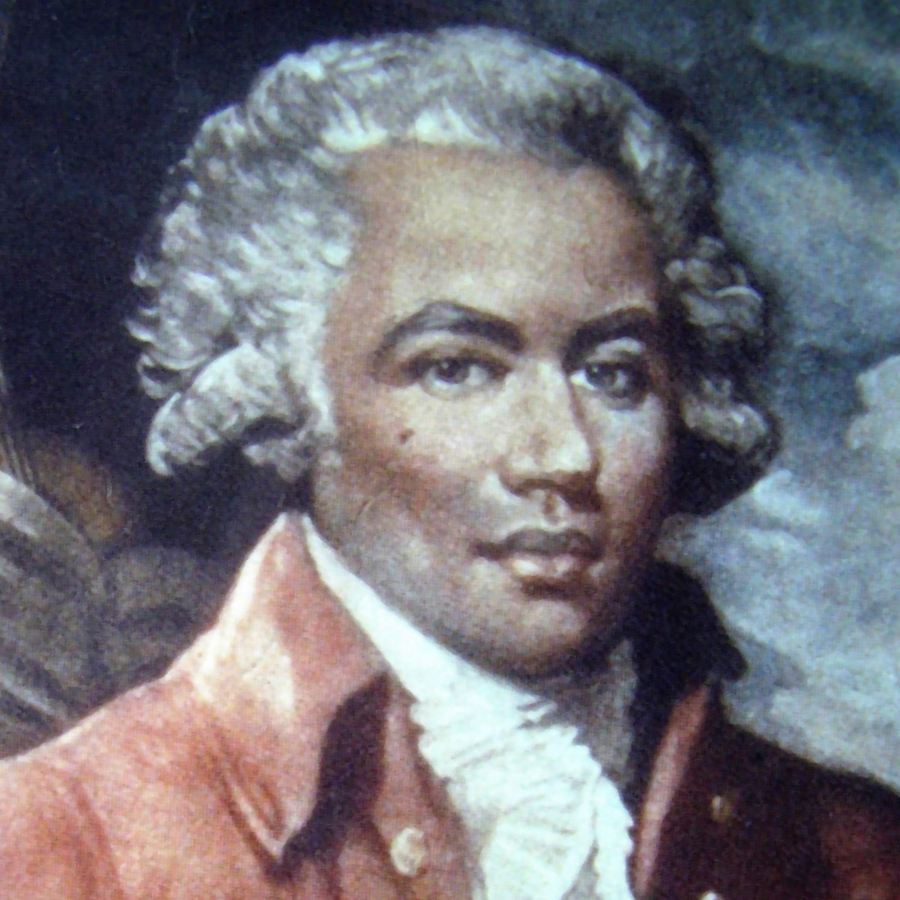
Joseph Bologne, Chevalier de Saint-Georges (December 25, 1745 – June 10, 1799), was a Creole virtuoso violinist, conductor of the leading symphony orchestra and classical composer in Paris. He was born in the then French colony of Guadeloupe as the son of Georges de Bologne Saint-Georges, a wealthy married planter and an enslaved African woman. At the age of seven he was taken to France and at the age of thirteen educated as gendarme to the King. He received music lessons from François-Joseph Gossec and probably violin lessons from Jean-Marie Leclair, but continued fencing.
In 1764 Antonio Lolli dedicated two concertos to Saint-Georges. In 1769 he joined a new symphony orchestra; two years later he was appointed concertmaster and soon started composing. In 1773 he was appointed conductor of “Le Concert des Amateurs”. In 1775 he introduced the symphonie concertante, using the possibilities offered by a new bow. In 1776 he was proposed as the next conductor of the Paris Opera, but was subsequently denied this role by a petition by the divas of the time to the Queen. This then put an end to any aspirations that Saint-Georges had to becoming the music director of the institution. In 1778 he lived for 2.5 months next to Mozart in the Chaussee d’Antin and stopped composing instrumental works in 1785. He knew many composers, including Salieri, Gretry, Mozart and Gluck. He commissioned and performed the Paris Symphonies by Haydn and travelled to London where he met with the Prince of Wales in 1787.
Following the 1789 outbreak of the French Revolution, the younger Saint-Georges served as a colonel of the Légion St.-Georges (established in 1792), the first all-black regiment in Europe, fighting on the side of the Republic. Today the Chevalier de Saint-Georges is best remembered as the first-known classical composer of African ancestry. He composed numerous string quartets and other instrumental pieces, violin concertos as well as operas.
Wikipedia


